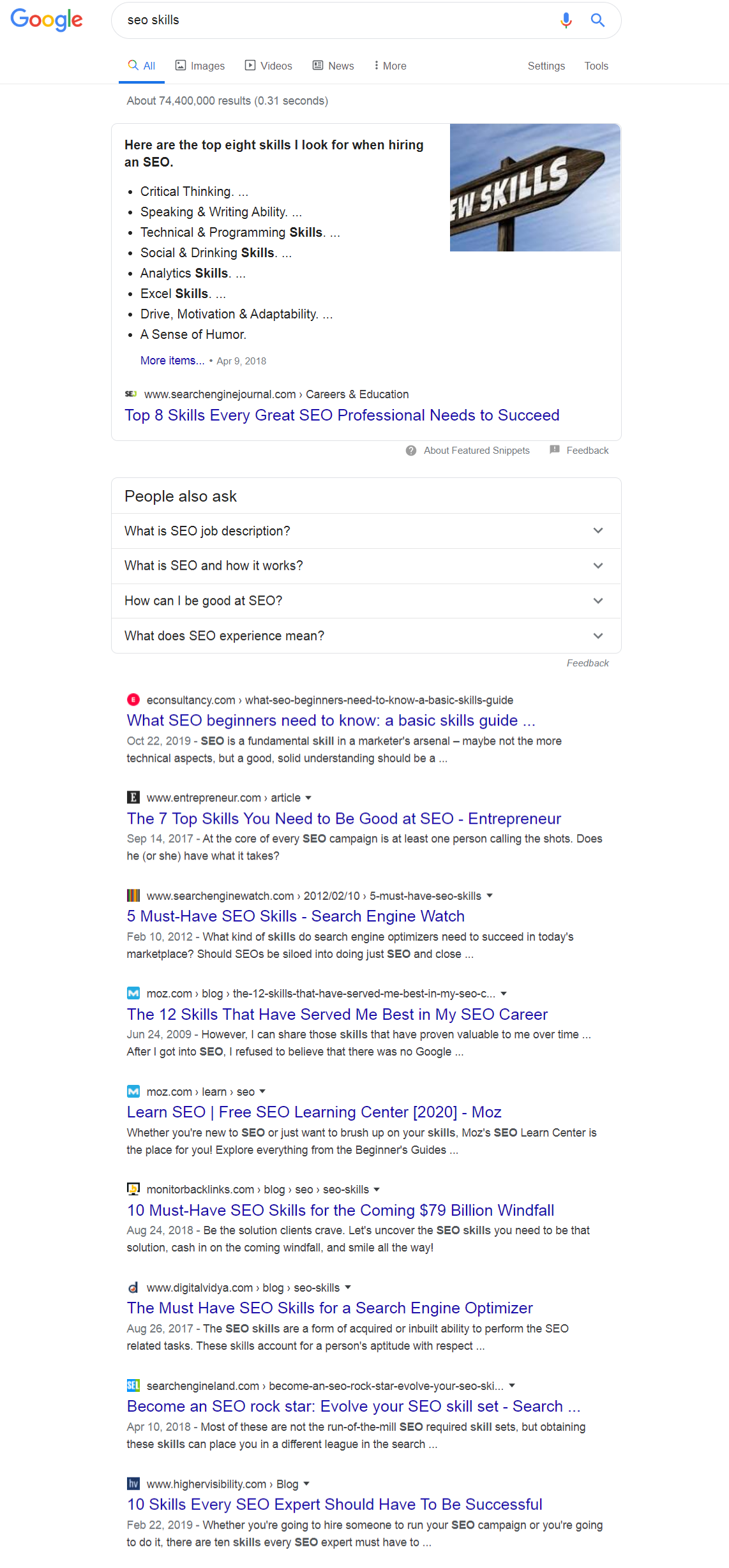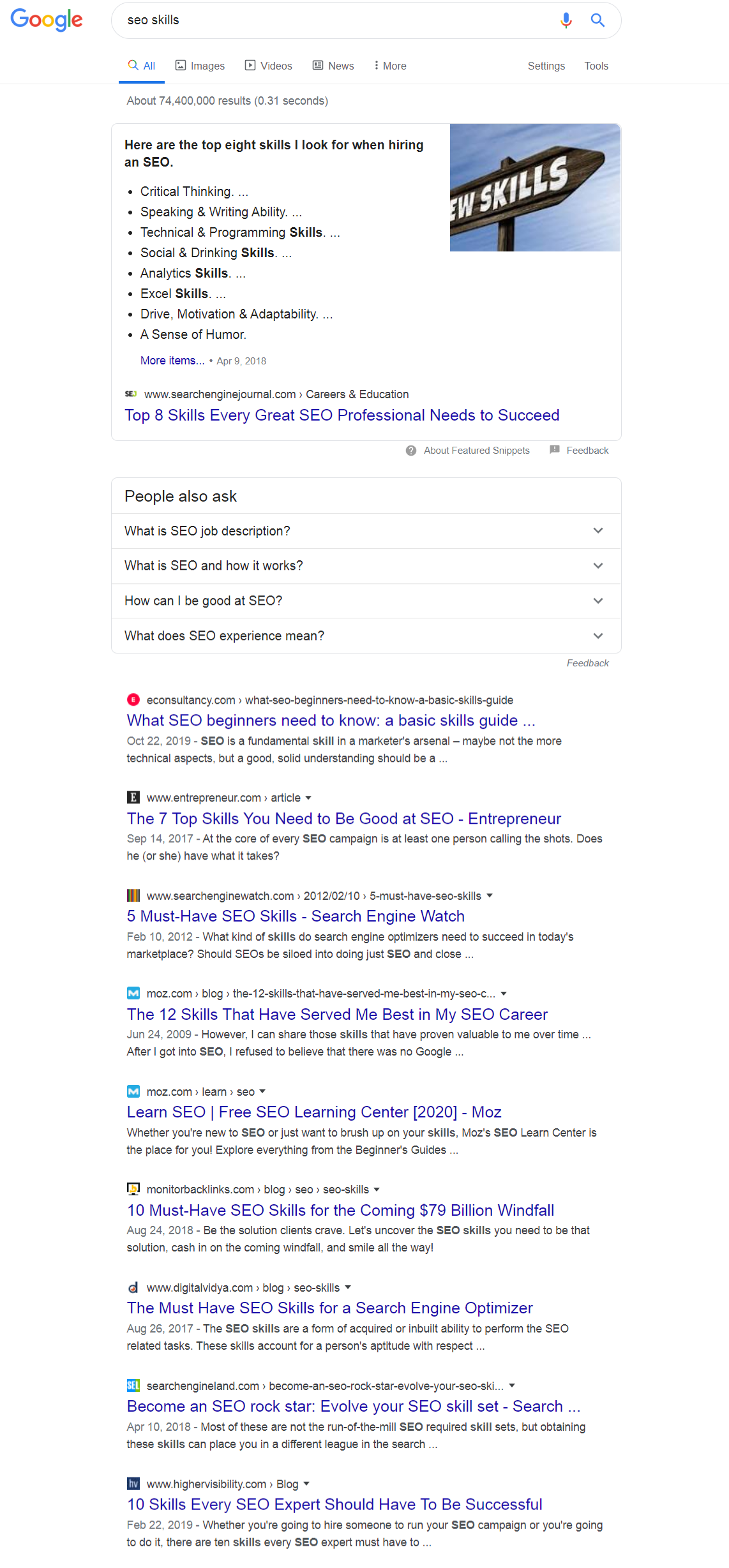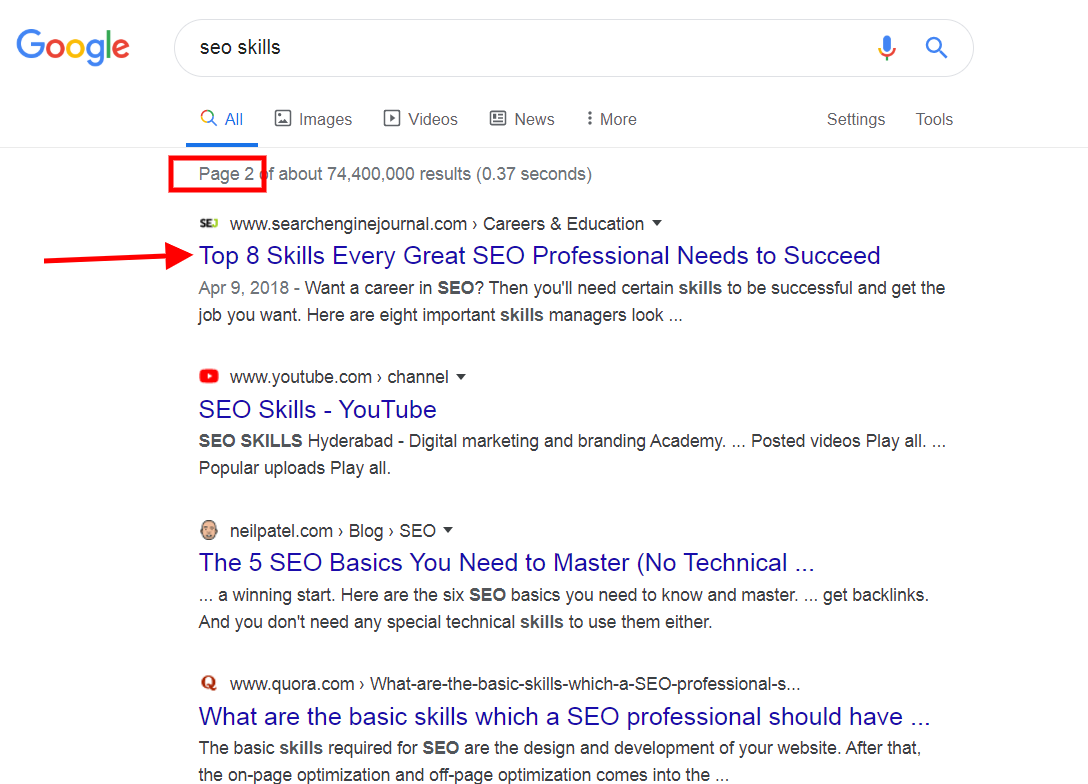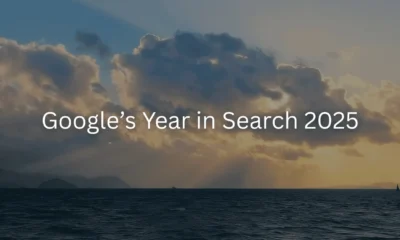Google: Webpages with Featured Snippets Won’t Appear Twice on Page 1

Google’s Danny Sullivan has confirmed that webpages in a featured snippet position will no longer be repeated in regular Page 1 organic listings.
This is a brand new change rolling out as of today.
The change will affect 100% of all search listings worldwide.
If a web page listing is elevated into the featured snippet position, we no longer repeat the listing in the search results. This declutters the results & helps users locate relevant information more easily. Featured snippets count as one of the ten web page listings we show.
— Danny Sullivan (@dannysullivan) January 22, 2020
Today, 100% globally.
— Danny Sullivan (@dannysullivan) January 22, 2020
Previously, it was not uncommon to see to see webpages in a featured snippet position appear twice on Page 1 of search results.
Going forward, that will no longer be the case.
Now, a webpage only gets one opportunity to appear on Page 1.
As Sullivan states, featured snippets count as one of the 10 webpage listings shown on the first page of search results.
This tweet from Shelly Fagin pretty much sums it up:
So I guess we need to stop referring to a Featured Snippet as Position Zero now huh. #seo #featuredsnippets #googleupdate
— Shelly Fagin (@shellyfagin) January 22, 2020
Let’s look at an example.
This Search Engine Journal post, Top 8 Skills Every Great SEO Professional Needs to Succeed, used to have a feature snippet and rank in Position 1.
Now the SERP (search engine results page) looks like this:

The organic listing for that Search Engine Journal post now appears at the top of Page 2 (or, position 11).

According to Pete Meyers of Moz, webpages in a featured snippet position have had their regular organic results pushed back to the top of Page 2. Although Danny Sullivan later tweeted that appearing at the top of, or even on Page 2, is not guaranteed.
Given that this update just rolled out today, it’s unclear how tools such as Search Console will handle the change.
Google’s John Mueller may provide further details tomorrow (January 23).
What If You Lose Your Featured Snippet?
In the past, if you lost a featured snippet, you’d still be on Page 1.
But now what will happen if you lose a featured snippet?
Do you return to Page 1 automatically, as an organic result beneath the new featured snippet?
Sullivan tweeted the following when asked about this scenario:
I would expect so. To be a featured snippet, you had to rank in the top results. Then we elevated. And now we deduplicate. If you don’t get featured, deduplication ends.
— Danny Sullivan (@dannysullivan) January 22, 2020
While Sullivan’s statement doesn’t seem 100 percent definitive, that would make sense – so hopefully that’s what Google will be doing. But that’s one you should definitely watch out for.
What About SERPs with 2 Featured Snippets?
What will happen in cases where a SERP returns two featured snippets for a query?
Search Engine Journal’s Executive Editor Danny Goodwin asked Sullivan just that on Twitter. Here’s what Sullivan said:
Deduplicate both. The whole page two stuff, by the way, people shouldn’t get hung up on. It’s about deduplicating on the first page. It’s not always guaranteed the URL will somehow come back up on the second page.
— Danny Sullivan (@dannysullivan) January 22, 2020
What’s important to note here is that just because you get a featured snippet, you won’t necessarily appear at the top of Page 2. As Sullivan noted: “It’s not always guaranteed the URL will somehow come back up on the second page.”
Sullivan also added that deduplication can happen beyond Page 2:
Nothing I’ve shared says you can’t have duplication happen beyond the first page of results. Deduplication is only about what happens on the first page. As things evolve, the whole “it’s showing up on page two” might not happen. So I wouldn’t say that’s how it works.
— Danny Sullivan (@dannysullivan) January 22, 2020
Early Reaction from the SEO Community
We asked Search Engine Journal contributors for their opinion, here are some of the responses so far:
Alan Bleiweiss, Alan Bleiweiss Consulting
Consensus for some of us is we need to test and evaluate deep data because serious loss of organic traffic on key phrases could require blocking the Featured Snippet from Google use at the code level. There are so many scenarios, possibilities, ramifications that it’s way too early to make any rash decisions. Yet ignoring this is a very serious risk at this point.
Data. I need data. Across different industries, different intent types, different phrase types (short vs long tail). Organic drop small, not at all, or big? Impact on traffic? Impact on CONVERTING traffic? What happens with short-term data vs. long term trend reality?
Brodie Clark, Brodie Clark Consulting:
Initial reaction is definitely frustration. Especially for those clients where you’ve spent countless hours trying to get the Featured Snippet. But I totally get why the change has been made. There’s always a silver lining to these things though.
I wrote a case study (published next week on Moz) about a site that gets 1m+ organic visits p/mo but doesn’t rank for any Featured Snippets. Result was that they’ve been filtered out algorithmically. This change means that they are only going upward, which is great for them.
Looking forward to digging into this more.
Dave Davies, Beanstalk Internet Marketing
My initial thought is: featured snippets are now for informational queries and branding but may need to be pulled back on for terms that may have conversion possibilities.
As Alan Bleiweiss accurately asserts though … need data.
There’s also that part where I’d likely rather be position 0 than organic 7, so I suspect it will heavily depend on what Page 1 position was/is held outside it.
Roger Montti, Owner of MartiniBuster.com & SEJ News Writer
This is unknown territory. So the best thing to do is monitor traffic to specific pages that rank for Featured Snippet and see how that performs.
Adding a nosnippets meta tag might backfire because position one in organic isn’t guaranteed.
So my advice to clients is: don’t jump before looking first.



![How AEO Will Impact Your Business's Google Visibility in 2026 Why Your Small Business’s Google Visibility in 2026 Depends on AEO [Webinar]](https://articles.entireweb.com/wp-content/uploads/2026/01/How-AEO-Will-Impact-Your-Businesss-Google-Visibility-in-2026-400x240.png)
![How AEO Will Impact Your Business's Google Visibility in 2026 Why Your Small Business’s Google Visibility in 2026 Depends on AEO [Webinar]](https://articles.entireweb.com/wp-content/uploads/2026/01/How-AEO-Will-Impact-Your-Businesss-Google-Visibility-in-2026-80x80.png)













